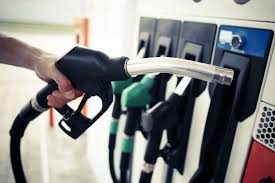NNPC Group CEO Mere Kyari insisted yesterday that the company no longer writes the rules that regulate Nigeria’s oil and gas industry.
According to the Punch report, Kyari explained that with the enactment of the Petroleum Industry Act of 2021 and the incorporation of NNPC under the Companies Act, the national oil company now competes with international oil companies (IOCs) and other national oil companies.
Speaking on the second day of the Nigerian Oil and Gas Energy Week in Abuja, Kyari said that the company, like others, will bid and compete for all domestic and global oil and gas assets.
He noted that there is a huge market for energy companies in Nigeria, as about 70% of the country’s population does not have access to clean cooking fuel and more than 50% do not have access to electricity.
He noted that Nigeria’s energy problems are intertwined with several factors, including availability, affordability, and sustainability.
Nonetheless, he insisted, “This country is changing and we can say we are a competitor. We are the NNPC Corporation. We don’t make the rules anymore. We are regulated and we will make the rules. We pay taxes and royalties like any other company, and we pay dividends to our shareholders.
We are in business, and business means competition.” Forget the fact that we are a private company and 100% owned by the government. By the way, as you all know, we will soon be going public. We are required by law to sell a portion of our stock. Once that happens, we will be no different from any other company,” he said.
While acknowledging that NNPC Limited is still in a position to facilitate business, Kyari emphasized that the company’s partnership produces more than 80% of the country’s oil and gas.
He clarified that the assets of the Production Sharing Contract (PSC) are no longer recorded on NNPC Limited’s balance sheet.
Undersecretary Gabriel Aduda of the Federal Ministry of Petroleum Resources also clarified that the federal government no longer sees natural gas as an energy conversion fuel, but as a destination fuel to provide energy access and power to the economy.
On energy conversion, the ambassador said: “We believe that as Africans we should be able to do it at our own pace and with our agenda and we should not be locked out of what God has given us as a natural resource. We need to pay special attention to this industry. I want to say this morning that Africa is doing better than any other continent in renewable energy.
Renewable energy in Africa is doing better than any other continent”.




